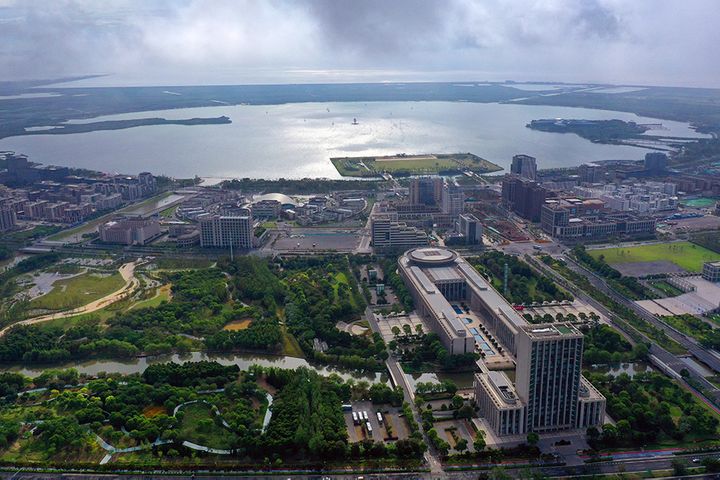 Shanghai to Plow USD14 Billion Into FTZ's New Lingang Area to Spur Growth
Shanghai to Plow USD14 Billion Into FTZ's New Lingang Area to Spur Growth(Yicai Global) Aug. 30 -- Shanghai will set aside at least CNY100 billion (USD14 billion) as special funds over five years to accelerate development of Lingang New Area, the recent addition to the city's free-trade zone.
The figure breaks down into more than CNY20 billion a year and is five times more than what the whole Shanghai Pilot Free Trade Zone received last year from a similar fund, Shanghai's finance bureau said in a statement today. It shows the special emphasis the city places on the new addition.
All of Lingang's income from taxation, land transfer fees, infrastructure support and special funds will be channeled back into the area as part of a special development fund.
This will more than double the amount that the district received previously from the local government, and will do much for its growth in the long run, Fan Ziying, deputy dean of the China Public Finance Institute at the Shanghai University of Finance and Economics, told Yicai Global.
Early this month, the central government announced that it was extending Shanghai's FTZ to include the 119.5-quare-kilometer Lingang district which lies southeast of the city. The aim is to develop it into a special economic zone with global influence and competitiveness and to better serve the country's overall strategy of opening up further to the world.
The special development fund will support industries, encourage innovation and entrepreneurship, train skilled workers and build infrastructure and public facilities. The government will use the money to boost research and development, hasten technological change and new product applications, as well as reward innovation, according to the statement.
Integrated circuits, artificial intelligence, biomedicine and civil aviation are important industries for the district's development, Shi Zhengwen, director of the Finance and Tax Law Research Center at the China University of Political Science and Law, told Yicai Global previously.
The municipality will also issue 50 preferential policies on taxation, human resources and land planning in the new FTZ area, the statement added. For instance, core R&D firms in key sectors will be taxed at a preferential rate of 15 percent for the first five years. China's standard company income tax rate is 25 percent.
The China Pudong Intellectual Property Protection Center will also open an office in Lingang to quicken the review of patent applications in the fields of biomedicine, integrated circuits, brain science and AI.